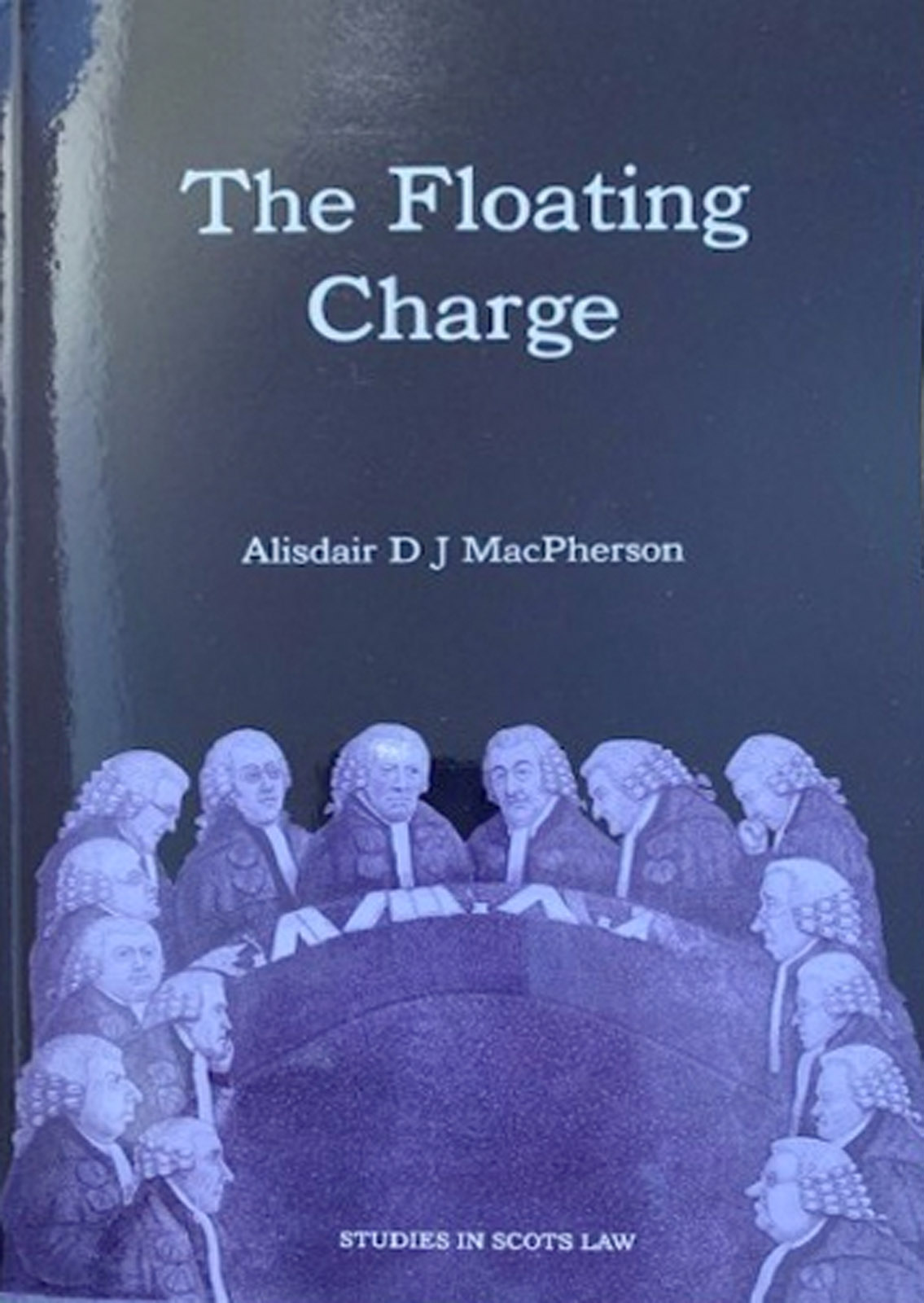Book reviews
The Floating Charge
A D J Macpherson
PUBLISHER: EDINBURGH LEGAL EDUCATION TRUST
ISBN: 978-1999611828
PRICE: £30
 It is a general principle of Scots law that every heritable security affects a particular heritable property and that it becomes effective only when a writ relating to that particular property enters the Land Register: the date of registration being the criterion of preference and of ranking. In the case of companies, this fundamental principle was radically altered by the Companies (Floating Charges) (Scotland) Act 1961, which introduced the floating charge into Scotland.
It is a general principle of Scots law that every heritable security affects a particular heritable property and that it becomes effective only when a writ relating to that particular property enters the Land Register: the date of registration being the criterion of preference and of ranking. In the case of companies, this fundamental principle was radically altered by the Companies (Floating Charges) (Scotland) Act 1961, which introduced the floating charge into Scotland.
This book is the eighth volume in a series, Studies in Scots Law, published by the Edinburgh Legal Education Trust. Its author is Dr Alisdair D J MacPherson, who is a lecturer in commercial law at the University of Aberdeen. The book is a revised version of the author’s PhD thesis as submitted to the University of Edinburgh in 2017 and is an excellent analysis of the subject matter.
In the words of the author: “The work contained within this book is unashamedly academic yet also inescapably practical.” I agree totally with that statement. The book is well laid out and thus easy to access. The index is not as detailed as one might expect, but that is a very minor criticism as it does not detract from the comprehensive coverage of the subject.
It has to be said that the detail in the book goes well beyond that which a busy practitioner is likely to require on a day-to-day basis, but when a case arises which requires a detailed analysis of the nature and scope of a floating charge to heritable and moveable property it should be to this book to which reference should be made.
A number of topics are ably addressed in the book. One such example is the case for a floating charge attaching on the appointment of an administrator – see chapter 3 and the work of Professor David Cabrelli referred to therein. Chapter 6 also contains a very good analysis of the enforcement of the floating charge – in particular with regard to competition with fixed security holders, liquidators, receivers and administrators.
Part B of the book also contains a very useful review of the cases of Sharp v Thomson and the non-floating charge case of Burnett’s Trustee v Grainger. The author is not slow to criticise what he sees as the flawed opinions in Sharp and the problems which flow therefrom: see chapter 7. As someone who, along with the late Professor A J McDonald, lobbied for many years for a deed of release to be obtained from a floating charge holder as well as a letter of non-crystallisation, the review of the case law and the various commentaries thereon is most welcome. I could go further and give more examples of the author’s in-depth analysis of various such issues, but to do so would take away from my central recommendation which is that this book should be a “must read” for solicitors involved with property and insolvency law and practice. It is both a scholarly and thought-provoking work.
Without wishing to detract from the comprehensive review of the subject matter of the book, the author’s conclusion is that while the floating charge is anomalous in our system it is, in fact, more coherent with Scots property law and insolvency law than has, to date, been suggested.
Professor Stewart Brymer WS, Brymer Legal Ltd
The review editor is David J Dickson
Regulars
Perspectives
Features
Briefings
- Civil court: Who has the final word?
- Licensing: More change to come in 2021
- Planning: new route to vary an agreement
- Insolvency: Securing creditor confidence in pre-packs
- Tax: OTS on CGT – the right fixes?
- Immigration: False economy
- Scottish Solicitors' Discipline Tribunal
- Property: Scotland’s cities: is the landscape changing?
- Four to the fore: ILC’s new faces






